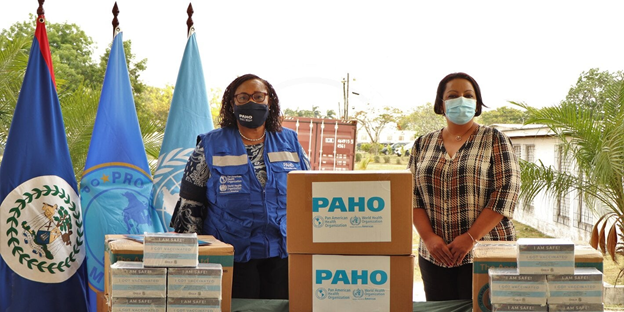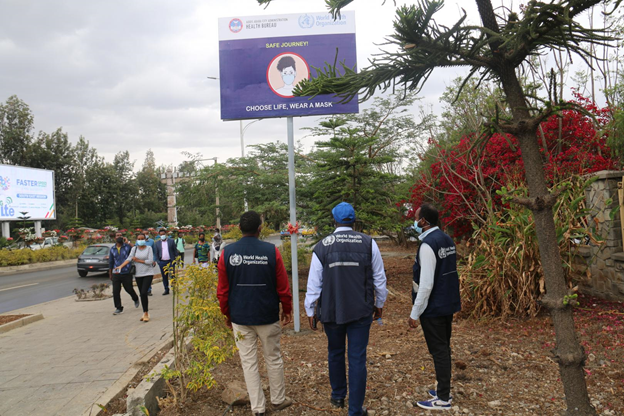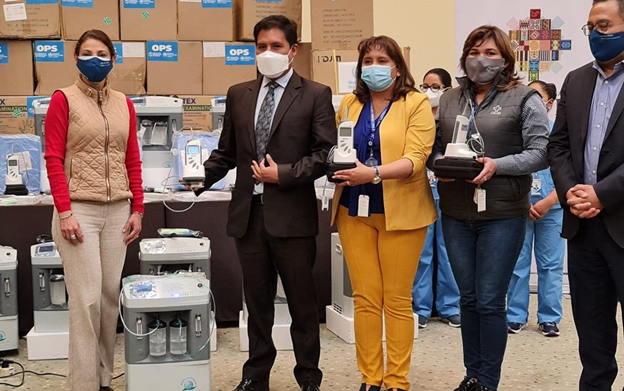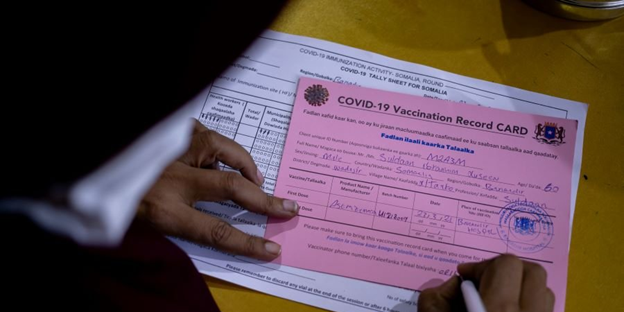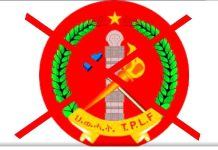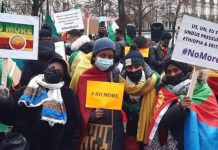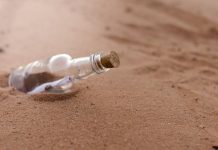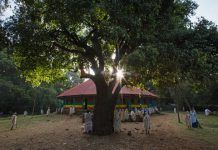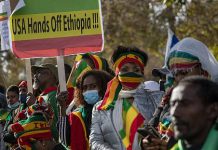Africa-Press-Ethiopia
WHO, in collaboration with Ethiopia’s regional health bureaus, recently launched a national campaign to encourage adherence to COVID-19 public health measures such as wearing masks and frequent hand washing. Widespread practice of these measures had been on the wane and has contributed to a rise in COVID-19 cases and related deaths, so it has been important to re-emphasize them.
WHO is supporting the installation of 100 billboards–a principal method of public service communication in the country–in all 9 regions and 2 city administrations. Key messages for the billboards were developed by WHO and local partners health bureaus in Amharic and English, and translated and adapted into additional Ethiopian languages.
Somalia: WHO, UNICEF and partners work with the Ministry of Health to boost vaccination and maintain essential health services Published by WHO/EMRO on 4 May 2021
With support from the Federal and State Governments of Somalia, WHO, UNICEF and other agencies have been providing vaccines in recent months to Somalis to fight preventable diseases. These include measles, pertussis, diphtheria, tetanus, hepatitis B, Haemophilus influenzae type b, cholera, tuberculosis, polio and now COVID-19. Mass vaccination campaigns, essential to maintaining the country’s health services, had been paused due to the pandemic but have now resumed.
Bhutan carries out one of the fastest COVID-19 vaccination campaigns worldwide
WHO helped Bhutan vaccinate more than 93% of its eligible population against COVID-19 in less than 2 weeks.This makes it one of the fastest countries in the world to immunize a majority of its adults during the pandemic. Over 1 217 vaccination posts were set up across the country treating 472 139 individuals, including frontline and healthcare workers.
WHO supported the development of the vaccine deployment plan as well as training materials for vaccinators. Technical and financial support were also provided to train health workers across Bhutan ahead of the campaign. During the campaign, WHO country office teams visited vaccination sites to monitor the programme and provide assistance.
Belize’s COVID-19 vaccine deployment gets a boost with a donation from WHO and Germany
To support Belize’s National COVID-19 vaccine deployment plan, the WHO Regional Office for the Americas and the Federal Republic of Germany recently donated a large stock of equipment to the Ministry of Health and Wellness. The donation will help improve monitoring and evaluation at all levels of the health system, especially important for COVID-19 vaccine deployment. The delivery included computer equipment, vaccination cards and informational material.
WHO delivers equipment to strengthen Bolivia’s health system
The WHO Regional Office for the Americas recently delivered equipment and supplies to the Ministry of Health in Bolivia to strengthen care for COVID-19 and improve genomic surveillance. The shipment also included oxygen equipment, personal protective gear and will help patients get care closer to home to relieve crowded hospitals.
Brazil receives 4 million COVID-19 vaccines through COVAX amid current surge
Brazil recently received nearly 4 million doses of vaccines against COVID-19 through the COVAX Facility, a global effort by WHO, the Coalition for Epidemic Preparedness Innovations (CEPI ), Gavi – the vaccine alliance, and UNICEF. The WHO Regional Office for the Americas helped facilitate the delivery.
Countries across Europe send life-saving goods to help India’s fight against COVID-19
WHO European Member States are contributing to global efforts to send urgent life-saving supplies to India, following the rapid resurgence of COVID-19 in the country, which has placed unprecedented strain on the health system. Critical equipment such as oxygen concentrators, oxygen cylinders, electric syringe pumps, and therapeutics have been arriving to reinforce efforts to treat patients and save lives.In addition to direct support provided directly to India by Italy, Uzbekistan, the Russian Federation, France and others, WHO is coordinating and distributing critical joint shipments of equipment and supplies to help India meet its most urgent needs. This includes oxygen concentrators, personal protective equipment, mobile field hospitals and laboratory supplies. The WHO Regional Office for South-East Asia has provided laboratory supplies and medical respirator masks.
An estimated 2 600 WHO technical staff, from various programmes, such as polio, tuberculosis and neglected tropical diseases have been redeployed to support health authorities to respond to the pandemic.
***
Without the support of donors and partners, WHO would not be able to reach these countries in need and help them make it through the COVID-19 pandemic.
WHO thanks all governments, organizations and individuals contributing to the COVID-19 response around the world since the beginning of the outbreak, and in particular those who have provided fully flexible contributions, to ensure a comprehensive fight against the disease.
Member States and other governments in 2021:
Australia, Belgium, Canada, Egypt, Germany, Ireland, Israel, Italy, Japan, Kingdom of Saudi Arabia, Kuwait, Lesotho, Malta, Mauritania, Monaco, Netherlands, Norway, Portugal, Republic of Korea, Spain, Sweden, Switzerland, Thailand, United Kingdom, United States.
Other partners in 2021:
African Development Bank Group, African Reinsurance Corporation, Asian Development Bank, Bill and Melinda Gates Foundation, China Medical Board, COVID-19 Solidarity Response Fund, European Commission, Foundation for Innovative New Diagnostics (FIND), Gavi-The Vaccine Alliance, International Organization for Migration (IOM), Islamic Development Bank, King Salman Humanitarian Aid & Relief Center (Ksrelief), National Philanthropic Trust (NPT), Rockefeller Foundation, Secretariat of the Pacific Community, Southern African Development Community Secretariat (SADC), Susan Thompson Buffett Foundation, United Nations Central Emergency Response Fund (CERF), United Nations Children’s Fund (UNICEF), United Nations Development Programme (UNDP), United Nations Office for the Coordination of Humanitarian Affairs (UNOCHA), United Nations Population Fund (UNFPA), Veolia Environment Foundation, Vital Strategies, WHO Regional Office for the Americas, World Bank.

